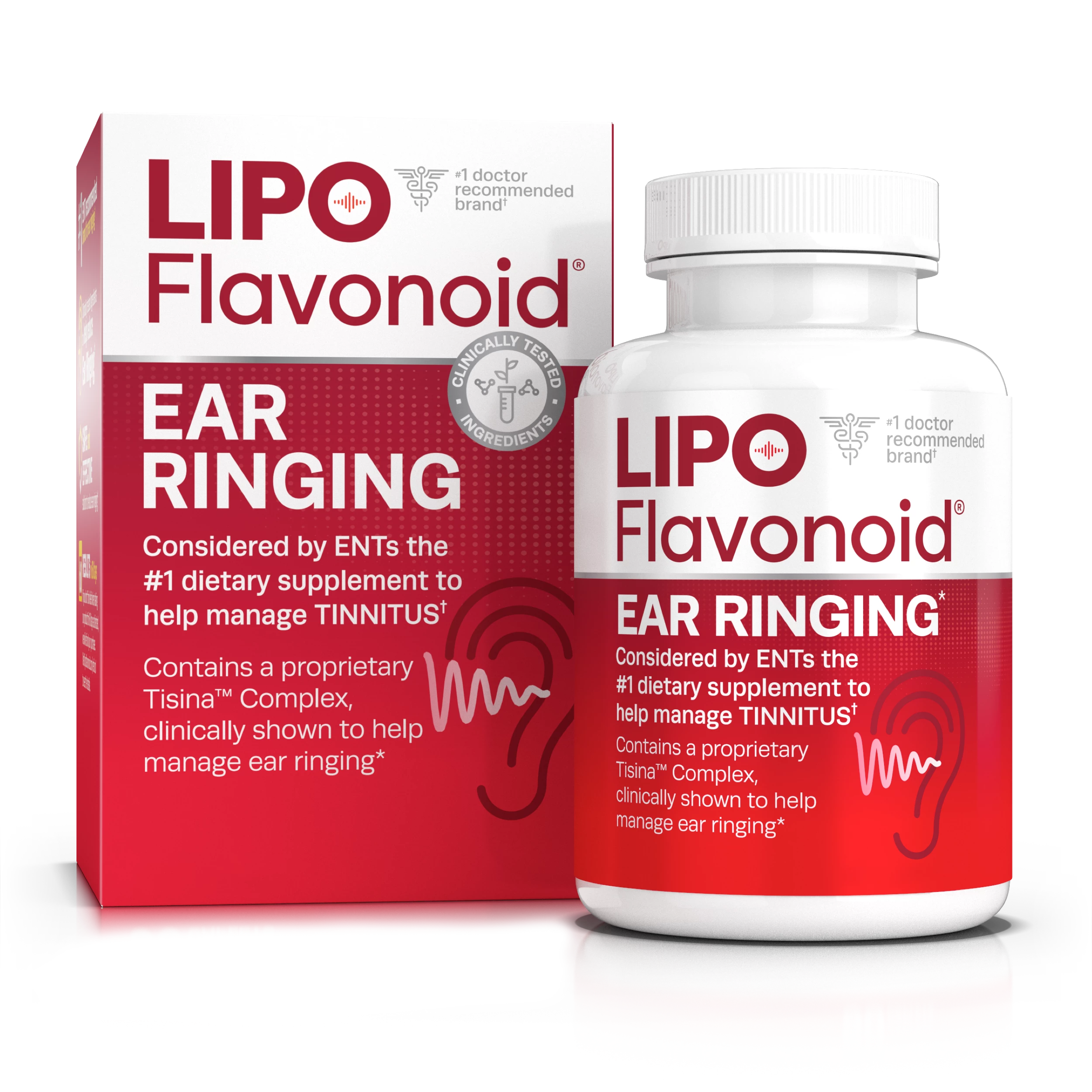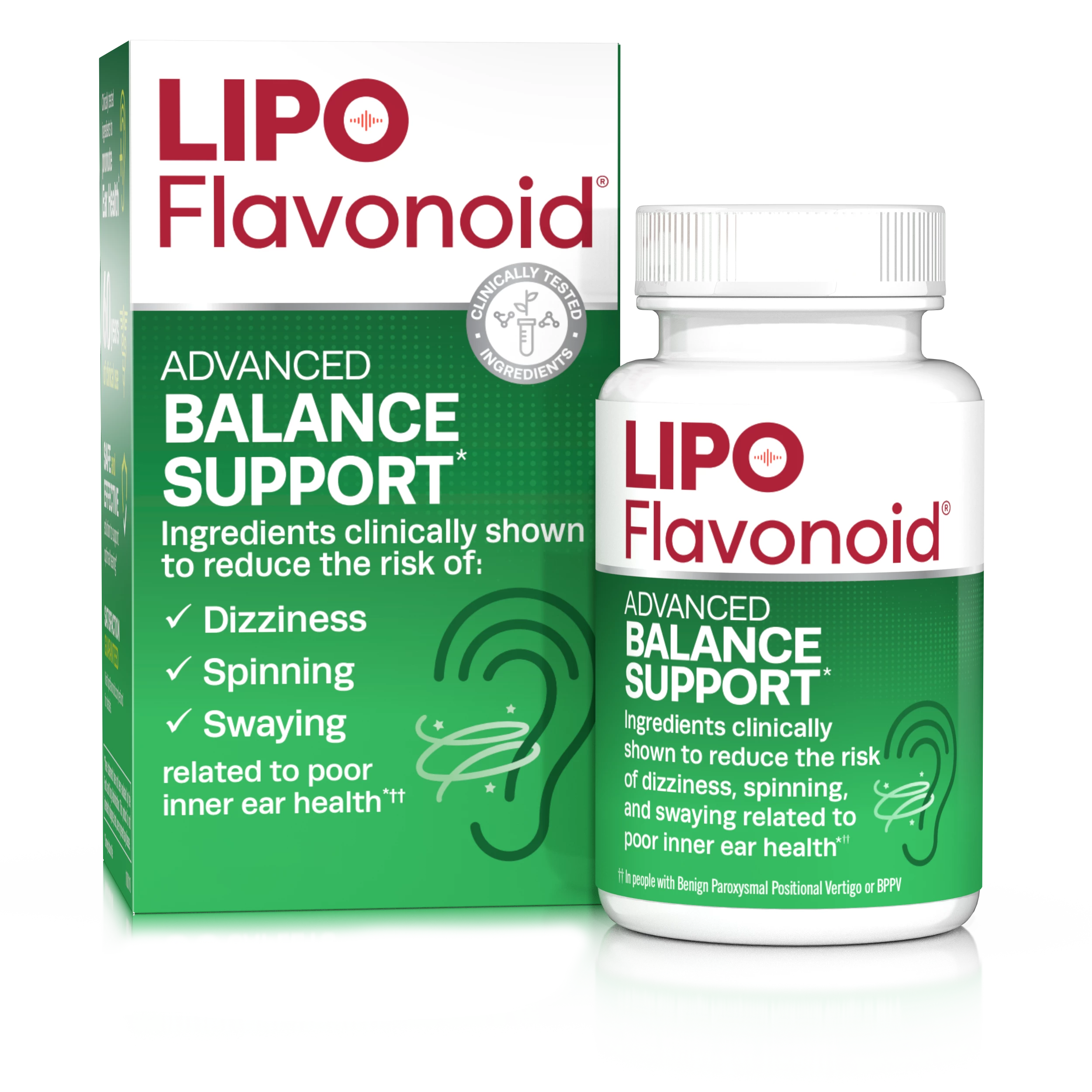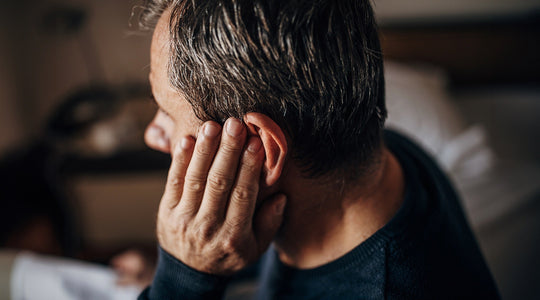- Products
- Science
-
Resources
- Tinnitus Resources
- What is tinnitus?
- Causes of tinnitus
- Tips for managing tinnitus
- Prepare for your doctor's visit
- PTSD and tinnitus
- Tinnitus FAQs
- Hearing Loss Resources
- What is hearing loss?
- Degrees of hearing Impairment
- Types of hearing loss
- Causes of hearing loss
- Treatment options for hearing loss
- Find a store
- My Account
-
-
- Healthcare Professionals
Shop Best Selling Products
Ear Ringing
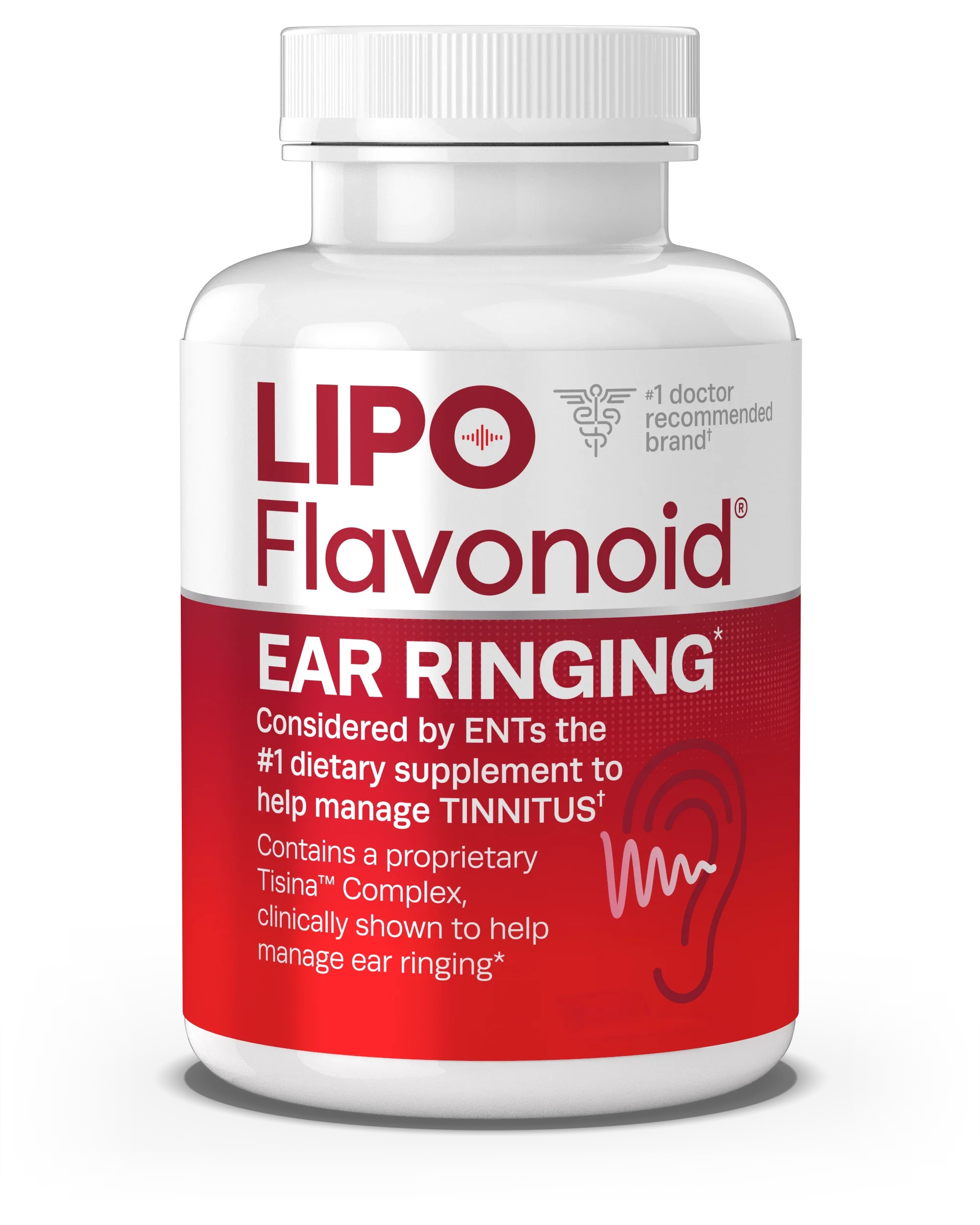
Lipo Flavonoid™ Ear Ringing
150 or 500 Count
Lipo Flavonoid™
Ear Ringing
Considered by ENT doctors the #1 supplement for managing ear ringing or Tinnitus. Contains a proprietary Tisina™ Complex, clinically shown to help manage ear ringing.
Vertigo
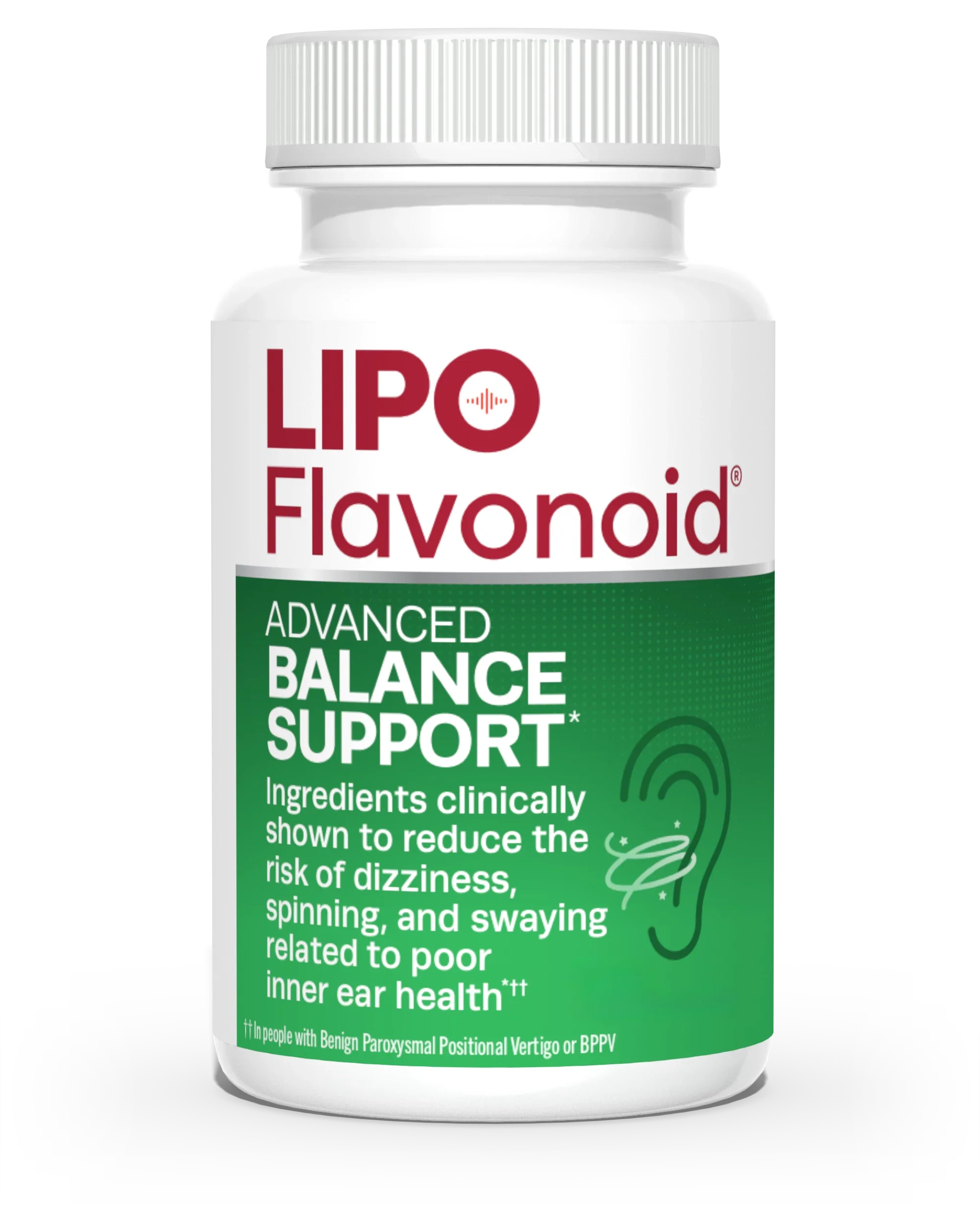
Lipo Flavonoid™ Balance Support
60 or 90 Count
Lipo Flavonoid™
Balance Support
Formulated with ingredients clinically shown to reduce the risk of vertigo-like symptoms such as:
Dizziness, Spinning, Swaying
Dizziness, Spinning, Swaying
Hearing

Lipo Flavonoid™ Hearing Support
60 or 90 Count
Lipo Flavonoid™
Hearing Support
Unique science-based formula with ingredients clinically shown to:
- Promote optimal hearing*
- Reduce the risk of future hearing decline*
- Helps preserve healthy hearing*

Ear Ringing
60 years of clinical use to help reduce ear ringing*
Made with an Exclusive Tisina™ Complex, which is shown to help reduce ear ringing.
- #1 ENT Doctor Recommended brand for Tinnitus*
- Natural Bioflavonoid supplement with essential vitamins ears need
25M+ Adults experience some form of tinnitus
that’s 1 in 10 people

Advanced Balance Support
Reduce the risk of dizziness, spinning, and swaying related to poor inner ear health†
† In a study of people with Benign Paroxysmal Positional Vertigo or BPPV
Clinically studied ingredients:
- B Complex for neurological support to inner ear neurons*
- Ginkgo Biloba to improve blood flow throughout the inner ear*
- Vitamin D nutrients for inner ear health*
- Bioflavonoid antioxidants proven to support healthy inner ear functioning*
90M Adults experience Vertigo/Balance Issues
that’s 2 in 5 people

Advanced Hearing Support
Slow the progression of hearing loss and promote optimal hearing*
Unique science-based formula with ingredients clinically shown to:
- Promote optimal hearing*
- Reduce the risk of future hearing decline*
- Helps preserve healthy hearing*
48M Adults have Hearing Loss
that’s 1 in 7 people
“Ear health issues can make you feel very alone so I use Lipo Flavonoid supplements to get my ears the nutrients they need.”
See how we have put ear health on the map.
Science of ear health
60 years of clinical use
Lipo Flavonoid is the #1 ENT doctor recommended ear health supplement* whose therapeutic benefit has been widely recognized in over 60 years of use and study.
